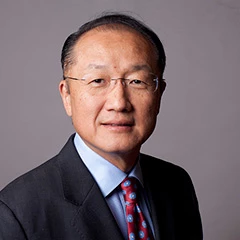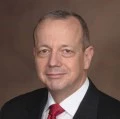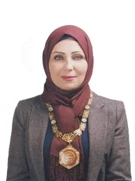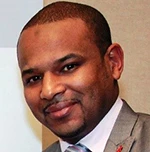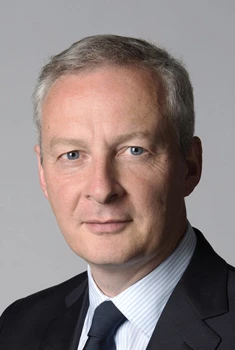The Security-Development Nexus
The Security-Development Nexus
As the lights dimmed in the Preston Auditorium for the start of the Security Development Nexus event, musicians rather than panelists took the stage. An impromptu musical performance followed, featuring songs of dislocation and loss by Syrian and Guinean singers. ‘Three Songs for the Uprooted,’ as the performance was called, with its evocation of the impacts of fragility set the tone for an event focused on deepening understanding of the critical relationship between security and development for restoring peace and consolidating stability.
One theme that ran through the discussion was the need to overcome the traditional separation among different actors. In describing the context, World Bank President Jim Yong Kim talked about how the forced displacement crisis had led to a revaluation of how humanitarian and development actors interacted. Dr. Kim acknowledged United Nations Secretary-General António Guterres as the first to call for closer cooperation to address the complex needs of refugees. With their status often lasting into decades, refugees had development needs that humanitarian actors were ill equipped to address.
General John Allen, now president of the Brookings Institution, also spoke of the need for close collaboration, but from the perspective of security and development actors. General Allen identified one of the primary causes for the failure of campaigns was ‘planning in isolation’; focusing exclusively on winning the war without preparing for peace. The recent campaign against DAESH was an example of a new approach, he noted, in which there was an immediate move to restore services in liberated areas. It was an important lesson on the need for joint planning among security, humanitarian and development actors.
The Mayor of Baghdad, Thikra Alwash, was also on the panel and echoed the need for close collaboration. Dr. Alwash described efforts to take advantage of improved security to clear roads and attract investments that would create jobs that would be longer term guarantee of stability. She warned that security would be critical for achieving development goals, and that while DAESH had been defeated, its ideology persisted and countering it would be a long campaign.
French Minister of Economy and Finance, Bruno Le Maire added to this theme by observing that winning a war against radicalism was impossible if the population does not have a long-term perspective. That perspective is achieved through education, promoting agriculture for independence, and economic recovery. This was at the heart of France’s dual track to promoting security in the Sahel, he explained. Both Minister Le Maire and General Allen also described the empowerment of women as central. General Allen noted that reconciliation processes that included women have proved to be more durable.
Malian Minister of Economy and Finance, Boubou Cisse noted that the Sahel Alliance was a model of international cooperation. Minister Cisse saw it as a sign of hope and called for greater alignment among all development, security and humanitarian actors for greater efficiency and impact. Along with the optimism, there was also a sense of urgency. In his concluding remarks, Dr. Kim described how the spread of technology has led to rising aspirations. Meeting these aspirations is an urgent mission as it will be key to future stability, and will require even closer collaboration to create economies that provide opportunities for all.

![[Backup] WBLive_landscape_All-colors - 1](https://s7d1.scene7.com/is/image/wbcollab/trending-World-Bank-Live-landscape?qlt=90&fmt=webp&resMode=sharp2)
